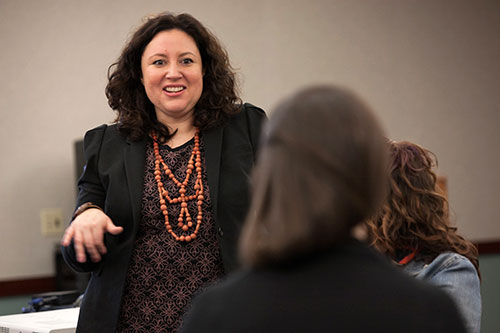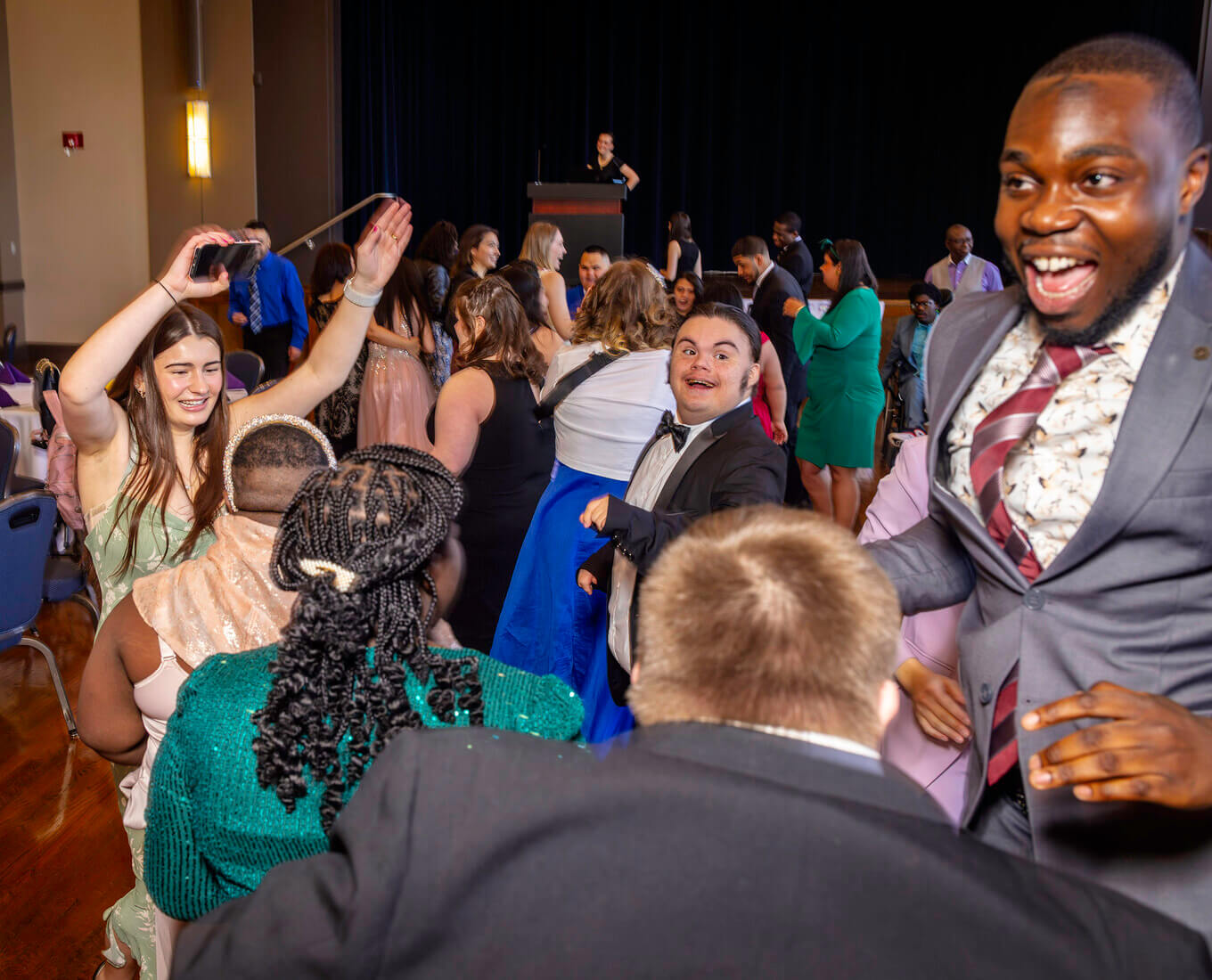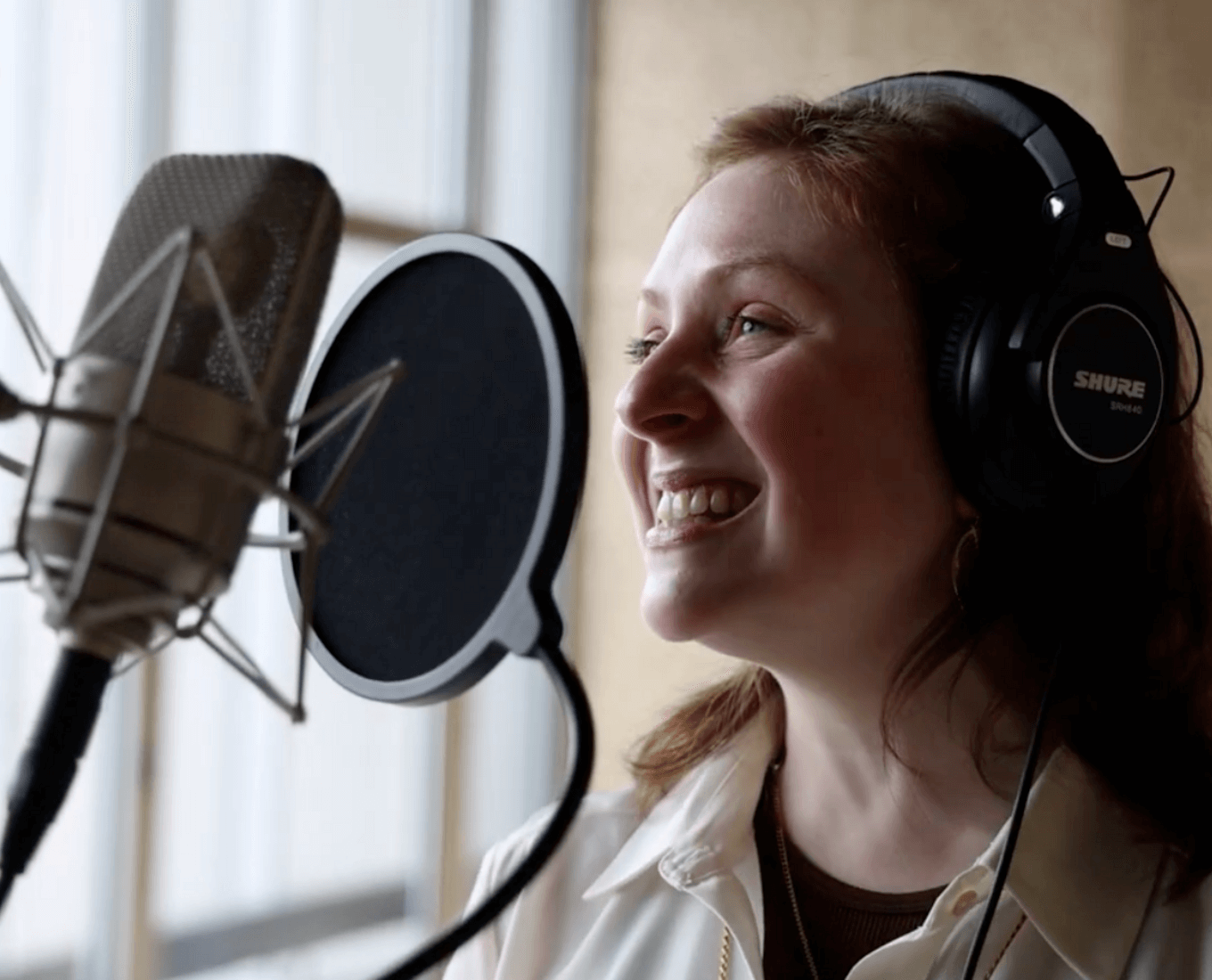Francine Rosado-Cruz ’94, a senior global diversity and inclusion manager at Microsoft, says that her experiences at the College of the Holy Cross informed her career choice and continue to influence her day-to-day work.
“Creating opportunities for others and making sure that everyone has the ability to be valued and to contribute in a meaningful way at work has certainly come from the experiences that I had at Holy Cross,” she says.
Rosado-Cruz is primarily responsible for providing leadership and support for Microsoft Services’ diversity and inclusion strategy and its execution worldwide. Microsoft conducts business in more than 110 subsidiaries across the world and Rosado-Cruz travels to many of them, logging about 100,000 miles of travel each year. Before joining Microsoft, Rosado-Cruz served as diversity and inclusion manager for Pearson.
She recently returned to Holy Cross to give a talk to prebusiness students and meet with the Diversity Leadership Team. Rosado-Cruz, who majored in English at Holy Cross, lives in Brooklyn, with her husband, Jason, and two children, Lily, 4, and Jonas, 7. Prior to her talks, she took some time to answer questions about diversity and inclusion in today’s workplace, and her memories of Holy Cross.
What would you describe as the biggest challenge facing diversity in today's workplace?
Right now there are a couple of things I see. The biggest challenge is that a lot of people think that diversity and inclusion is only about race and gender, and I think it’s hard to shift the conversation because for a long time that really was the primary focus. I think moving from “it’s the nice thing to do” to “it’s a business imperative” is where I see our biggest opportunities within diversity and inclusion. I also see socioeconomic diversity being a bigger issue that’s not really talked about right now. I think another emerging trend is people with disabilities. It’s been on the radar of this field, but I think now there’s increasing legislation in the U.S. and globally that will help put it in the forefront of the diversity and inclusion field.
How do you overcome those complex issues?
We have to ask ourselves how do we come up with programs and policies that support the whole person. Because people are multi-dimensional. Take myself: I’m not just Hispanic, I’m not just a woman, I’m not just a mother. All of those things make up who I am. As the field evolves, that’s what we’ll be looking at.
Part of my work is data analysis — looking at and identifying trends — and then also developing programs to help with the development of our diverse talents. One of the big initiatives that we have at Microsoft is mentoring rings, where we get people together, and they meet with a senior leader throughout the year to help them with their own career development. We also help in ensuring our leaders can articulate the business case for diversity.
We also assess where we are in our diversity and inclusion journey. So we have a maturity model that we designed to help us understand where we are. Because I think one of the biggest questions we get from leaders is, “How do we know when we are successful? How do we know when we get there?” We developed a model to help us understand how we get from foundational, the most basic level, to world class organization enhanced through diversification.
The type of work that I do is really varied. A lot of it is HR oriented, but with a diversity lens. We’re becoming more integrated with the HR function to ensure that diversity is now longer a “stand alone.”
You attended Holy Cross at a time when ALANA (African-American, Latin American, Asian-American, and Native American heritage) representation among students wasn't as high as it is today. How would you describe your experience at the time?
Growing up near New York City I saw a lot of other people that were like me, so it was probably my first awareness of what it meant to be a minority since I didn’t see a lot of other students like me. Despite that, I was able to make some strong connections with people and I certainly didn’t see it as a hindrance in my ability to make connections and have a rich experience here.
Any final thoughts?
I feel very fortunate to do the work that I do. And I think I underestimated the influence Holy Cross had on my life earlier in my career and as I’ve matured and have had more experience it’s certainly become much clearer how much Holy Cross is part of the fabric of who I am today.
Microsoft Manager Rosado-Cruz ’94 on Diversity in Today’s Workplace
Read Time
4 Minutes


